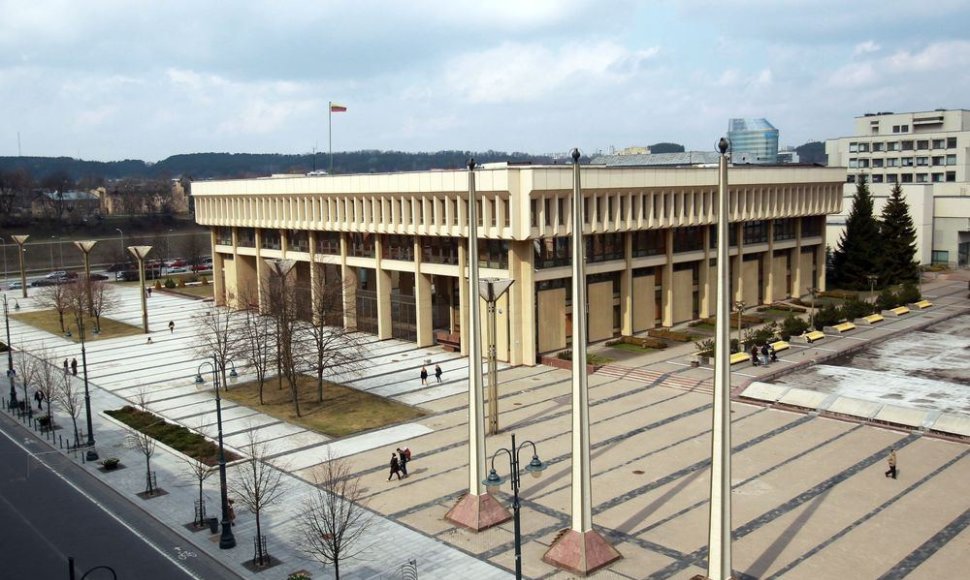The HU-LCD’s ratings fell sharply soon after it won the parliamentary elections in 2008 because it introduced numerous small taxes on the poorest electorate. The state’s income from these taxes hardly exceeds the increased Lithuanian Tax Inspectorate’s administrative costs. Such a policy looks more like an imitation of policy. The real benefit for the country’s budget would be radical cuts in the state administration apparatus, but PM Andrius Kubilius, like all the previous PMs of all political colors, doesn’t have the courage for it. The state survived the economic crisis due to primitive borrowing policies.
Such openly demonstrated contempt from the government toward simple people results in Lithuania’s continuing leadership in the EU in the export of human beings to other EU states (emigration) and to heaven (suicides). Interestingly, this lack of understanding of the needs of the poor masses is shared by politically-correct-in-a-Lithuanian-way journalists and well-established-in-the-elite so-called intellectuals who are politically close to HU-LCD and LM.
Economist Aura Maldeikienė advised the HU-LCD to follow the teaching of Conservative English thinker Phillip Blond, who urged to “re-moralize the market, re-localize the economy, re-capitalize the poor.” However, the HU-LCD showed little interest in fighting the rule of local monopolies and cartels.
One of the ways to re-capitalize the poor could be lowering the value added tax (VAT) on food. This idea by Algirdas Butkevičius, leader of the Social Democrats, should be welcomed (it is the only sane idea of the opposition party in this election campaign). The Lithuanian poor spend their money mainly on heating and food. Poland’s VAT for meat is 5 percent, meat products – 8 percent, local fruit and vegetables – 3 percent while Lithuania’s VAT of 21 percent is imposed on all these products. This fact and the lack of a currency peg in Poland causes Lithuanians to go mass-shopping to Poland, i.e. the donation of hundreds of millions of litas into the budget of a neighboring state.
The lead of the Labor Party in public surveys results only from the personal charm of its leader, Viktor Uspaskich. He speaks of things that would spell political suicide in the USA or some countries of Western Europe: for example, he said on TV that he tried love for money, but prefers some emotions to be involved in the process of intercourse. The rest of the politicians in comparison look like dull members of the Soviet-era Kremlin’s staff, or copies of some black & white photos of farmers of the 1930s. The electorate understands that Uspaskich may be a crook, but at least he looks like a human being. The advice to any politician in Lithuania: just be yourself in front of TV cameras.
The HU-LCD should not overdose in echoing the views of the Catholic Church hierarchy (otherwise, it will start looking like a parliamentary group for the defense of Christian values, which last week was created by MPs of the pro-Putin United Russia and pseudo-oppositional Communist Party in the Russian Duma). Although the majority of Lithuania’s population describe themselves as Catholics, it does not mean that this majority takes for granted the views of the church. Lithuanians are not different from the rest of the world’s Catholics: even though the hierarchs ban using condoms, 98 percent of Catholics worldwide use them while Sidney brothels had their most profitable days ever in July 2008, when Pope Bendict XVI attended a Catholic World Youth Day there that attracted 250,000 foreign visiting pilgrims to Sydney. It is worth noting that the Polish Catholic hierarchy’s agitation against the reformed communists in the 1990s gave the exact opposite electoral result than was intended. Opinions of the Church’s leadership mean rather little for the electorate. It seems that recently, some MPs of HU-LCD started to put accent on the issues of justice, not some medieval theories, and that is a welcome tendency.












